|
By Kerry Kincy Yolanda Hart, owner of Carrot Top’s Sweet Potato Treat, and I grew up in the same town and shared many of the same larger circles of community—a sort of “my people know your people” epiphany. And yet, I’m not sure we had ever had a real conversation outside of me ordering one of her sweet potato Bundt cakes just shy of a year ago. Just as the reality of the global pandemic was about to sink in, folks were lining up for toilet paper rolls and cleaning supplies. Me? I was looking for all the comforts that a sweet potato Bundt cake could bring and came across beautiful pictures of Hart’s mini pies and mini cakes. Hey, we all cope differently, right? Hart bakes mostly to keep a balance between her teaching job and love for baking. In fact, she’s been teaching English, biology and math to high-school students in Middletown for more than 20 years and holds two Masters of Education in Urban Leadership and in Special Education and Teaching. She’s held many leadership roles in education, including Coordinator of the Minority Student Coalition at Middletown High School. Most recently, she transitioned from teaching high-school students to differently abled junior high students in the Intensive Case Management Program. Hart works tirelessly to uplift and empower her students and absolutely loves her work. For many years, Hart’s mother, Carolyn, owned a sweet little café in Middletown called 3 Sister’s Place. I don't think there is a soul that walked through those doors that didn’t feel welcome and at home upon entering. Having had their bellies filled just right made their visits even more incredible. In retrospect, I remember the restaurant being an unassuming experience in all things feminine, an experience of sisterhood, of food and in Black family culture. Of course, back then, I didn’t have the awareness of that concept nor the language to articulate of all that. However, the palpability of it was enough to keep returning for a dose of that which only can be felt: home. This sense of home is what you taste in every one of Carrot Top’s Sweet Treats. The name “Carrot Top” was given to Hart’s Mom, Carolyn, from her grandfather. In the summer months, Carolyn’s hair would beam a beautiful orange and her father gave her the sweet nickname. Like most Black families, these terms of endearments stick to you forever. It’s special for sure and even more special when looking back in the totality of someone's lifetime. My grandmother called me “Peanut Butter,” and, like peanut butter, it has stuck to me and my memories of her. These seemingly simple things about Black culture keep my own ideas of Blackness appreciated and adored. Nicknames, in a sense, feel like “ours.” In November of 2014, Hart’s mother, Carolyn, passed away. A few years later, Hart decided she would try to make one of her mom’s sweet potato pies. Her first attempt rendered the most perfect sweet potato mixture and crust. She wasn’t sure if she just wanted to believe so badly that it tasted just like her mom’s, so she brought the pie to her dad and older brothers to taste. With their collective confirmation, it felt as if they were all back together, and a sense of all the love Hart’s mother had for her family enveloped them. It was home again. “My dad and I talked about even contacting the Oprah Winfrey show to share,” she beamed. Uncles, aunties and folks who had never tasted her mother’s sweet potato treats were equally in awe at this sort of magic that could only have been sent to Hart from the heavens above. Then, one of Hart’s uncles found a recipe for sweet potato cake from her great grandmother and was eager to share it with her. She followed the recipe and that too came out equally as beautiful and delicious as the pies. After only a few practice cakes, she added them to her repertoire and Carrot Top’s Sweet Treats offerings. Initially, her treats were enjoyed most often by family and friends, but then, she began sharing with her larger community. “I don't know why I was the chosen one,” laughed Hart, having only ever sat across the table and watched as her mom made her sweet potato pies and cakes, with no recipe and few measuring cups and spoons. Hart crafts heartfelt, meaningful and thoughtful sweet treats for everyone to experience. “It was mostly just spending time [together],” she shared. “The importance of that time became even more real after my Mom’s passing.” All too often, we both agreed, you find more reasons that you love someone when they are no longer here in their physical body. We shared how heart wrenching it is to want to tell them that one more reason, and, why you love them and cannot. Agreeably bittersweet. Living in disbelief of many of the inequalities we live as a people, no one could ever take from us the sweet nuances that make up a visit to mom’s, watching her prepare traditional Black meals and desserts. You always know who made the potato salad and you always know, within a bite, who didn’t make it. Black culture, like Carrot Top’s Sweet Treats, is rich, colorful, royal and it carries a degree of “ours” within every bite. Hart is now busy crafting heartfelt, meaningful and thoughtful sweet treats for everyone to experience. Her business partners include Josiah, her 21-year-old son, who helps with deliveries. Her 5-year-old son Jeremiah has become an invaluable team member, helping his mom with baking and packaging. Carrot Top’s Sweet Treats are heaven in your mouth and provide some of the best of what Black culture offers: a sweet taste that carries the collective spirits of our great grandmothers, grandmothers, aunties and our own mothers to our kitchen tables long after they have left this physical world. Carrot Top’s Sweet Treats taste like home. Hart has been successfully experimenting with a new Sweet Potato cookie recipe to add to her offerings and graciously shared it with ShopBlackCT.com fans. Deacon Hart’s Delights 2 1/4 cups of flour 1 tsp baking powder, salt, cinnamon and nutmeg 1 cup of softened butter (room temperature) 3/4cup brown sugar 1/2 cup granulated sugar 3/4 cup mashed purée sweet potato (I use the batter for my pie!) 1 egg 2 tsp vanilla extract 1 1/2 cup crushed walnuts 1 cup shredded coconut 1 container of cream cheese frosting, melted Preheat the oven to 375°. Mix dry ingredients together in a small bowl. All except for the sugars. Cream both sugars and butter together until smooth, and fluffy. Add the vanilla, egg and sweet potato. Beat well. Add the ingredients from the small bowl and mix until combined. Add 1 cup of walnuts. Save the other 1/2 cup for the topping. Scoop small balls onto baking sheets and bake for about 5 minutes. Add the coconut and bake for another 8 minutes or until golden brown. Cool completely. Lightly drizzle with melted cream cheese frosting and sprinkle with the remaining walnuts. Carrot’s Top’s Sweet Treats is located in Middletown, Connecticut. Visit their Facebook page to learn more. BROWSE THE SHOPBLACKCT DIRECTORY:
1 Comment
By Kerry Kincy Yes, it’s Capital with an “a” and no, it’s not a spelling error (for all our "Grammarly grammars" out there…LOL). Even though Capital Ice Cream is located on Capitol Avenue and is just two blocks from the state Capitol Building, the owners envisioned opening a place that was reflective of the beauty, positivity and diversity of the people of the capital of Connecticut—Hartford. That said, they take great pride on being affectionately referred to as the “The Happy Place in Hartford”. Chantell Kelly, who co-owns this sweet little magical place with her husband Shane, says she gets asked that question about the spelling a lot. According to Kelly, it was intentional—because when you dream you’re supposed to dream big! We hope to expand throughout the city of Hartford and beyond! Kelly and her husband are Hartford residents. They saw a need in their community and decided to fill it. As a Kindergarten teacher, Kelly’s students would always share stories of going to far away places to have ice cream. As a parent, she would also take her own children beyond city lines into West Hartford and other towns for ice cream. Always aspiring to open a community business, she and her husband thought how nice it would be to open an ice cream shop that local children and families could enjoy and be proud of right in their own neighborhood. Voila! Dreams can come true if you only just believe. She believes her little shop, with more time and resources, can be recreated in many towns across the state. On an otherwise invisible strip just beyond the Bushnell Performing Arts Center and before the once famous Capitol Records—another hidden gem that for years stored and sold albums that would delight only the serious of vinyl collectors—this jewel is worth “the dig.” I mean, what’s more exciting than finding a hidden gem? Capital Ice Cream is definitely a treasure—glimmering and sparkling with happiness. “I love that little brown girls and boys come inside and see someone that looks like them, that I can be a role model...It feels good being able to nourish their ideas of self and help them to see in real time, that they too can achieve anything they put their heart into.” As soon as I walked up to the building I was taken back to my childhood when the biggest problems in the world were what flavor of ice cream to choose. Although only about 250 square feet of frontage and maybe 250 square feet more inside, the rainbow of colors all over the shop is a feast in and of itself for the eyes. Handmade tulle cones stacked high upon each other in the window complement and offer a preview of what lies ahead and colorful umbrellas and metal stools circle the outdoor tables. I learned that Kelly enlisted the help of local artists and nearby University of Hartford art students to create the detailed menu artwork on the walls. Capital Ice Cream’s staff only adds to the brightness that emanates from this tiny shop. The sign on the door instructed that only three customers were allowed inside at a time. However, I think even if current times didn’t require six feet of space, any more than three feet would not provide the space needed to peruse the choices that the colorful menu just above eye level displayed. I was thrilled to be able to take it all in slowly. Just being inside Capital Ice Cream is its own enchanting experience. As I scanned the menu, my eyes settled in and focused on the Kindness Cones. This gentle reminder in selflessness encapsulates exactly what Kelly’s intentions are and why she chose this particular location for her shop. Customers are invited to purchase a kindness cone at a discounted rate and leave a handwritten note on a paper cut out to “pay it forward.” “So often children from the neighborhood stop and peek into the shop, sometimes just wanting to say hello, simply curious, and sometimes humbly ask for a cup of water,” shared Kelly. “The cones are for these children and families that come, sometimes ordering two cones for a family of five to share.” We can all appreciate that not many families have extra income to purchase an ice cream cone. “Pay it forward” kindness spreads and is as delicious as the selection of Capital Ice Cream’s toppings. Of course, a Kindness Cone was included in my order and honestly, made my cone taste even better. When creating her business model and wanting to offer top quality products, she realized the price point might fall outside the income levels of some families in the neighborhood, and rather than sacrifice quality and continue to maintain a successful business, this was a way to make her amazing ice cream accessible and available to everyone. For those of us who cannot handle the speed at which this amazing “real” ice cream demands on a hot summer day, the cup and spoon “just in case” was a smart idea. I realized I couldn’t lick and hold another cone—and wear my mask simultaneously—so I quickly rushed outside to hand over my friend’s cone and sit down. As I enjoyed my sweet treat, I watched as a little boy, maybe all of three years old, held tightly onto his cone as he and his dad were exiting. His eyes were filled with anticipation as he waited patiently to remove his mask to taste. I felt it deep in my heart: this new normal is not feeling normal at all. Thankfully, Kelly and her sweet shop are helping create a place of comfort and inspiration despite these challenging times. “I love that little brown girls and boys come inside and see someone that looks like them, that I can be a role model,” she said. “Both children and adults are surprised to learn that a Black woman owns this sweet little place. It feels good being able to nourish their ideas of self and help them to see in real time, that they too can achieve anything they put their heart into.” Capital Ice Cream 389 Capitol Avenue Hartford, CT 06016 860.906.1308 www.capitalicecream.com BROWSE THE SHOPBLACKCT DIRECTORY:
Kim, Charles and Kerry Kincy (Photo courtesy of Kerry Kincy) By Kerry Kincy Inspired by my father a Black entrepreneur, and by the Black Lives Matter movement in Connecticut and across the country, I set out to learn more about the experience of being a Black business owner and the importance of community support. What I discovered revealed a familiar and sometimes uncomfortable truth. My father was a Black inventor, a reader and a dreamer. Charles Kincy's best ideas came during the day, driving in a brown truck, in a brown uniform and delivering brown packages. He was an entrepreneur and created small Black-owned businesses in his community his entire life. For one of those businesses, Antiklectables, he purchased and sold Black art and Black memorabilia and it continues to operate today, nine years after his passing in June 2011. He was a successful businessman and a major contributor to the Black economy locally and beyond. A sense of agency—the intentionality for which he instilled the importance of supporting Black-owned business—was paramount to him. Ownership was always echoed in his conversations. “Owning” your history, your craft, your knowledge, your successes, and passing on your motivation to move forward in the direction of your Black ideas and dreams--those were his legacies. Charles was adamant, standing firm on the importance of reading, and was generous with reminders to pay attention to who had paid for those books to be written. It was important for him. He understood that racism was real and that it was often hidden beneath layers of narratives, disguised as nonfiction. Charles believed that despite being enveloped in racism, it was essential to know your own value and how your value contributed to the environment around you. I recently took to my neighborhood to explore other Black entrepreneurs in my community, to learn and discover more about the experience of being a Black business owner and the importance of community support. Bobby Perry, my neighbor, friend and pseudo-surrogate dad was my first source. Mr. Perry, now retired, and his wife, Olivia, have owned several businesses over the years. Mrs. Perry continues to provide custom tailoring services and Mr. Perry’s food truck was one of my favorites. We chatted in his garden, like we do most summer mornings while watering his collards. “Back in the day, I had so many people supporting me. Whenever there was something going on in town, the schools, the police events, anywhere, there was a need for good food, I would get a call. Larry McHugh, from the Chamber, was really good to me over the years and always made sure I was there. The biggest support came mostly from the white community,” he shared. I wondered why the majority of his support came from white folks more than folks that looked like us. He said, “There were a lot of good Black customers too, but sometimes people are threatened by someone else’s successes, and don't know how to act if they think you’re getting ahead faster.” That old saying about crabs in a bucket came to mind and sadly not particular to just Black folks. I later called to pose the question to Jessica, the Perrys’ daughter. Jessica grew up watching her parents work hard and create business opportunities that could provide for their family. “Growing up with parents as entrepreneurs, Perry’s Groceries, Perry’s Ice Cream, Excellent Designs by Olivia (a tailoring business) and Perry’s Hot food trucks, in addition to their full-time jobs, was simply a way of life and deeply rooted in us. Being your own boss while creating a good, quality product was and is our continued focus,” Jessica said with pride. Jessica and her daughters have followed in business, opening Queendom's Luxury Eyelash Extension line design in 2018, and later relocating to Central Florida. The business, which Jessica runs with her daughters, has grown exponentially over the last two years. She has also just recently started another business, Purpose Partners, which was launched in May and, despite the pandemic, has been well-received by the community. For business owner Jerome Mountcastle, the risk of entrepreneurship was like stepping into the unknown. Jerome was a troubled teen, and worked for a local car dealership detailing cars. He supplemented his income, “hustling drugs in the streets” to provide for himself and keep on top of child support payments that took most, if not all, of his paycheck most weeks. He decided to open his own detailing business, and although his first season was successful, when winter came and business dried up, he explained that he had to go back to the dealership. “I wasn’t aware of any business resources that could help me understand how to stay in business during slow seasons, and fell short in my financial responsibilities,” he said. But he kept at it, using the skills he acquired “hustli'n’”—quality goods, customer service, dependability, loyalty and word of mouth to build his business model.
It was clear to him those same strategies could be helpful in creating a solid business plan. “I found a way to create a life for my family doing what I love to do. I had come from nothing and now my children get to see and learn about working hard, about taking positive risks, about responsibility to self and about staying humble in all of it,” he said. Most of Jerome’s clients are between 50 and 70 years old and “mostly white people,” he laughed. I asked him why he thought his business had more support from whites in the community and he replied emphatically, “People are envious. They come work with you, see the money and think it’s easy. They quit and try and take your clients, never realizing that what I was doing was making a space for everyone to learn and feel successful. It was never just about me.” Jerome reminded me of my dad, who has worked full-time delivering packages for UPS and spent the rest of his time creating business ideas and making them real like the shoeshine stand he built and leased to other Black men in the community to exercise their entrepreneurial dreams. Charles also designed and created underwear for men and used the nonsensical stereotypes about Black men being more endowed to boost sales. He was brilliant at taking what he saw as oppressive and racist, rethinking it in a way that gave the power back to himself and other like-minded Black and brown dreamers. In part, I believe the paucity of witnessing and being exposed to successes in Black communities prevents Black folks from ever getting past the dream stage. We all have a dream, however the opportunities to see, learn, be exposed to and have access to Black successes are limited. The tools needed to continue to make those dreams a reality are learned and a muscle that must be exercised often. Environment is everything and access to programs and resources to help make real, entrepreneurial dreams come true are needed now more than ever in our Black communities. What I did discover is a common thread in my exploration of the experience of Black entrepreneurship. When asked who were their biggest supporters, the Black business people I talked to agreed that more whites than Blacks were to account for their repeat business. As a Black woman in business, I myself found the same to be true and only ever mentioned it in close company. But why? I wanted to dig deeper and understand some of the root causes and found these two interesting reads. Looking Beyond the Numbers: The Struggles of Black Businesses to Survive: A Qualitative Approach is a research study that aimed to use qualitative measures rather than quantitative to understand the barriers Blacks face in Black communities to be successful and sustainable.
I found a copy of a conversation that was published in Essence Magazine in 1984 between civil rights activists Audre Lorde and James Baldwin that gave me a different perspective and helped me to understand a little bit better. The conversation provides insight into the cultural structures where Blacks are already embattled in their own attempts within Black culture to escape being trapped into an Americans dream that systematically is set up to be unattainable. In an excerpt from “Revolutionary Hope: A Conversation Between James Baldwin and Audre Lorde” the two discuss race and business. The structures that naturally form in a culture where you're indentured in someone else’s idea of who you are, what you can be and offer the world are crumbling. The invisible biases that accompany Blacks in business are being exposed and remedying with a renewed sense of altruism. Allies are continuing to seek ways to support our Black entrepreneurs in creative ways. It’s driving positive changes across communities here and beyond. The substance of hope and faith have been evident in this new light of collective and cohesive strength the Black Lives Matter movement provides all of us. Today, I see the biggest shift in our young people. Recent events have provided a space for healing together and a place for young Black and brown people to come together in ways that force us to look at how we fight oppression and amplify our value together. “Seven million young people of color will have turned 18 since the last election,” wrote Dr. Melanye Price, a professor of political science at Prairie View A&M University in Texas, in her op-ed in the New York Times. “These newly eligible voters are primed for political participation after having consumed a steady diet of videos of racially motivated shootings and stories about the kidnapping of immigrant children. But their interest in politics is also thanks to the activism of groups like Black Lives Matter. There’s much more compelling evidence that we can motivate these young people to vote,” she wrote. Change is indeed coming and young people have created a shift in all of our perspectives on how to be more supportive for the greater good. As kids, my sister and I would rather clean and cut greens all day, than listen to our dad’s oratories about value, ownership and power. We would begrudgingly repeat back his words and subsequently remember it in our bones: “You are royalty. Your ancestors come from royalty and you must continue to honor and uphold these truths of who we are and carry on the legacy.” At the time, as fascinated as I was with the idea of coming from a royal family somewhere deep in the roots of our family tree, I found it hard to reconcile, since so many exchanges we shared as a family in our community and the world proved to be less than royal. My dad went to the extent of coming up with a code word for us to say when something or someone challenged our ideas of self, our value and our truth: “Kinciditia.” It was the signal that our truth would overpower any negativity that came at us; a sort of Kryptonite for our arsenal when dealing with racism in our everyday lives. As a kid, I never really understood why a sign that said “No Blacks, No dogs, No niggers,” would be important for his collection. I never understood his attraction to underground lithographs, prints and posters that depict Black folks as animals, in ugly blackface cartoons and always, always less-than. Today, I understand how deeply he felt about his Black experience, the experiences of Blacks in history, of how we as Black people were portrayed and how hard he worked his entire life to dismantle it. He worked equally hard his entire life to instill in us that we were valuable beyond any measure then what others set for us, and for me that has made all the difference. browse the shopblackct directory:
|
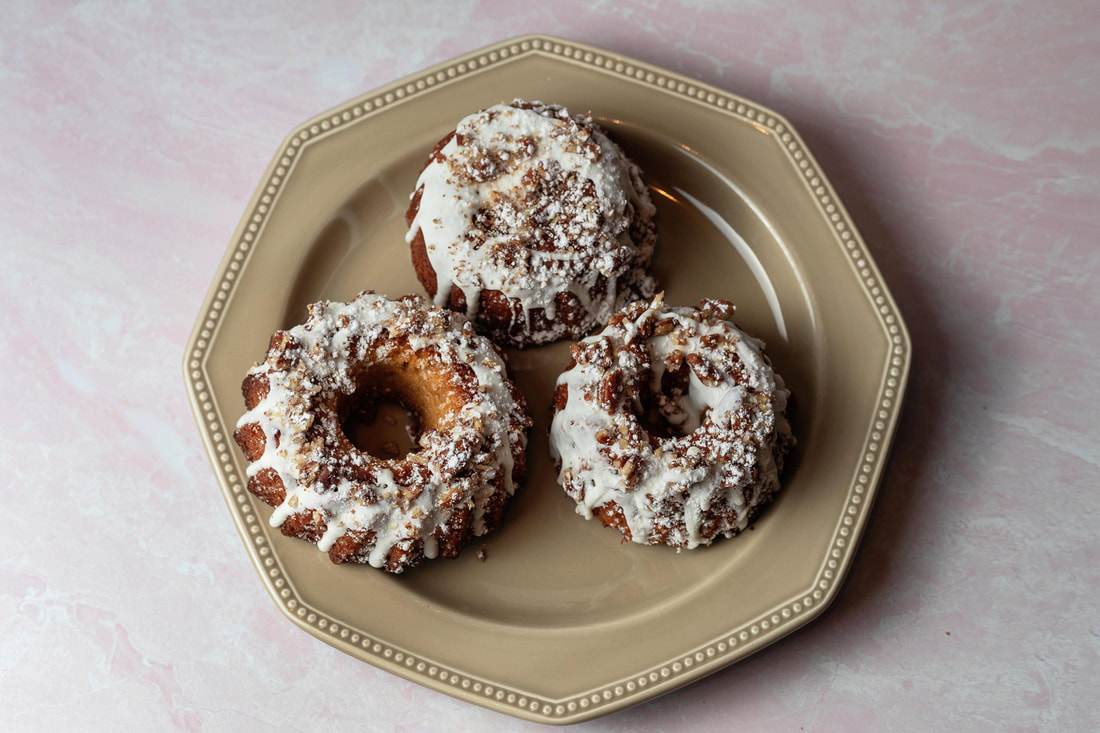
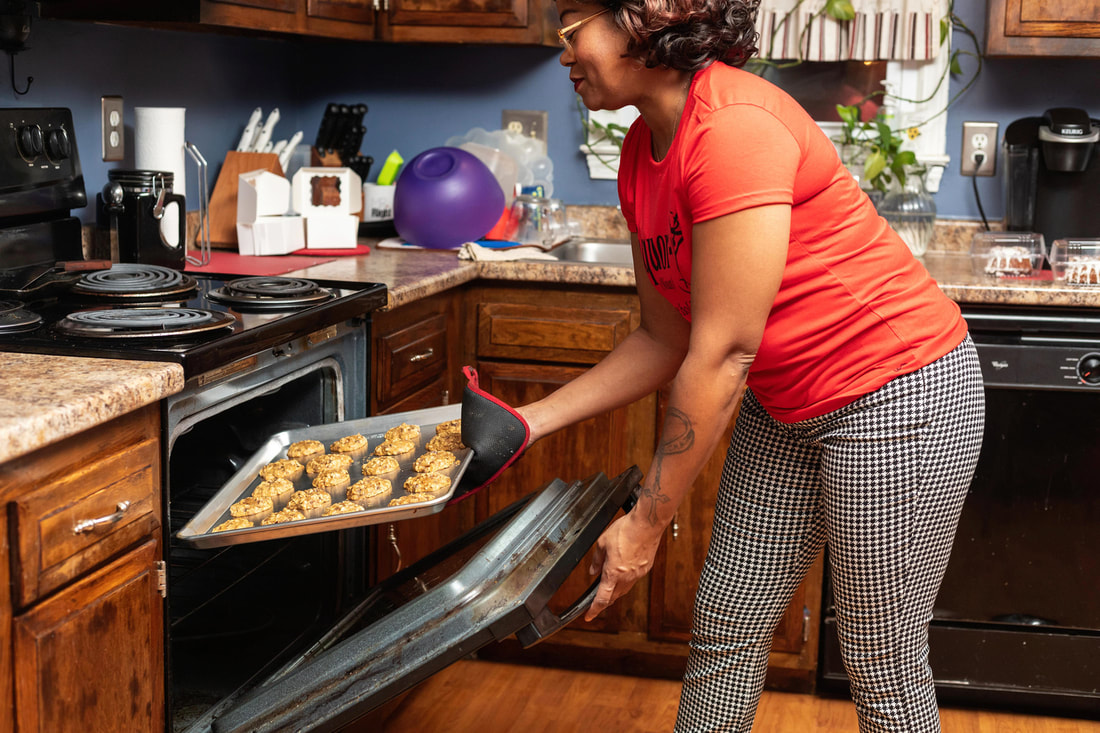


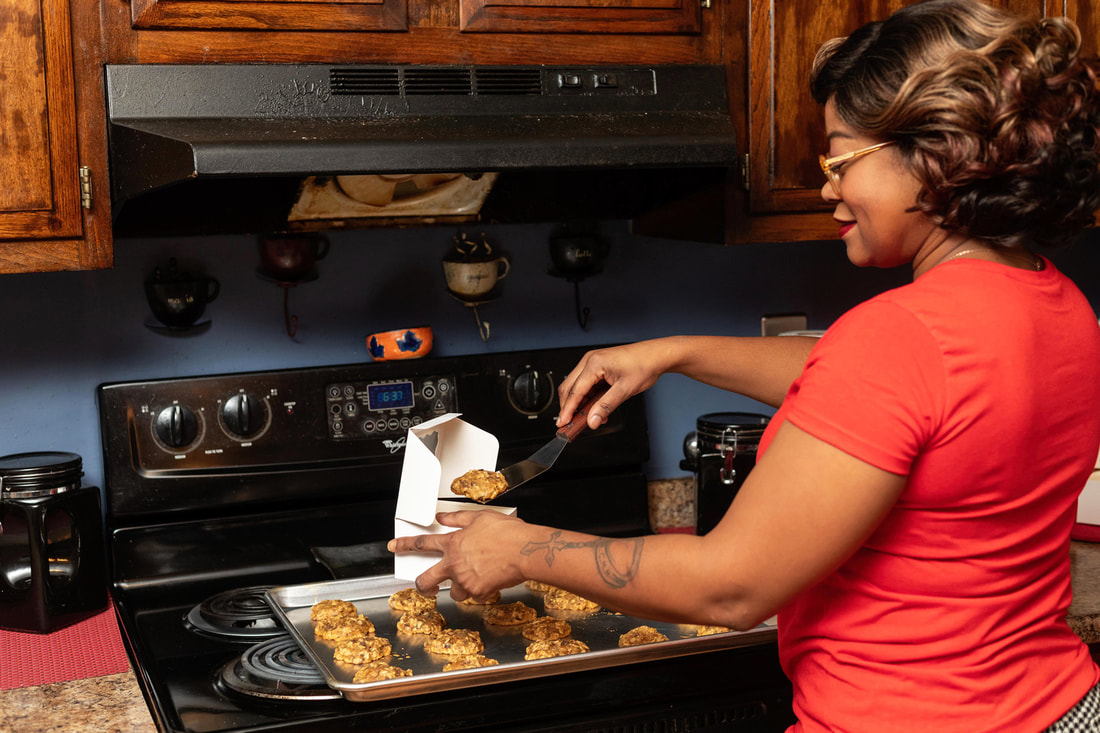
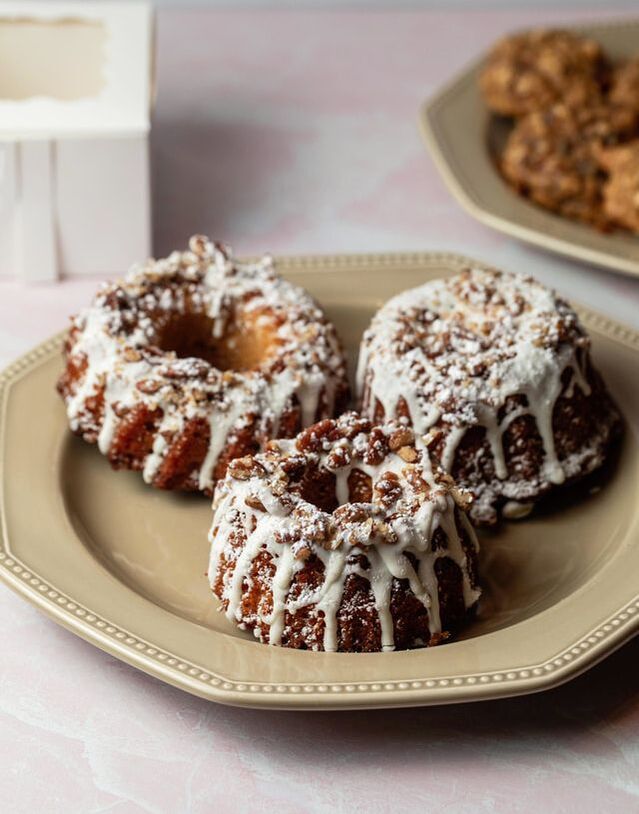
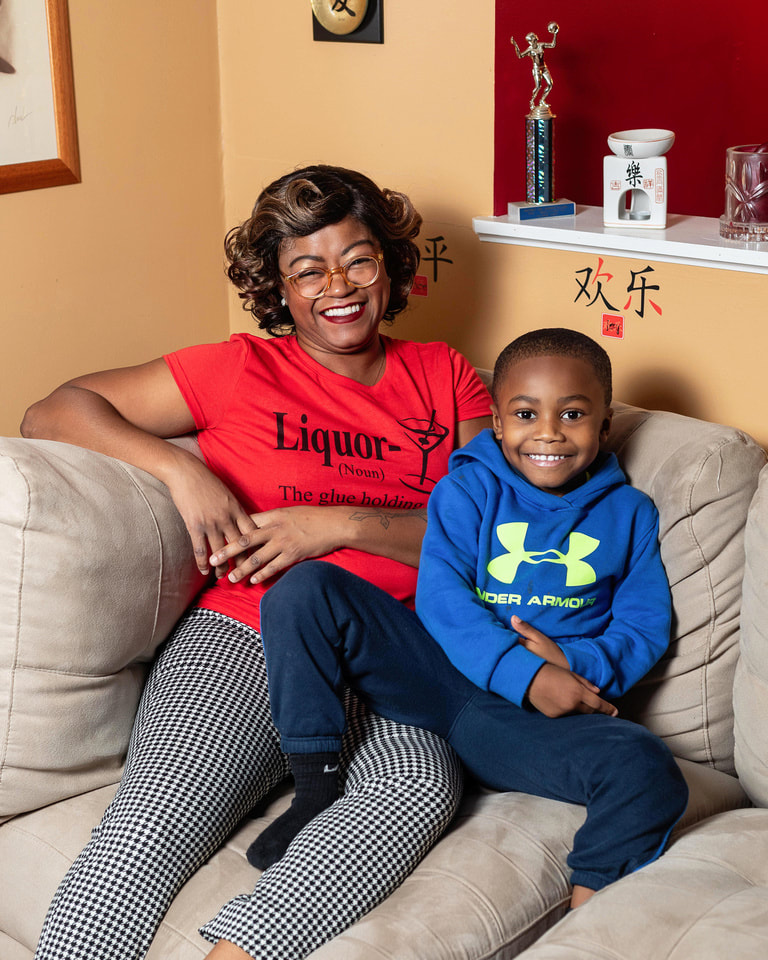
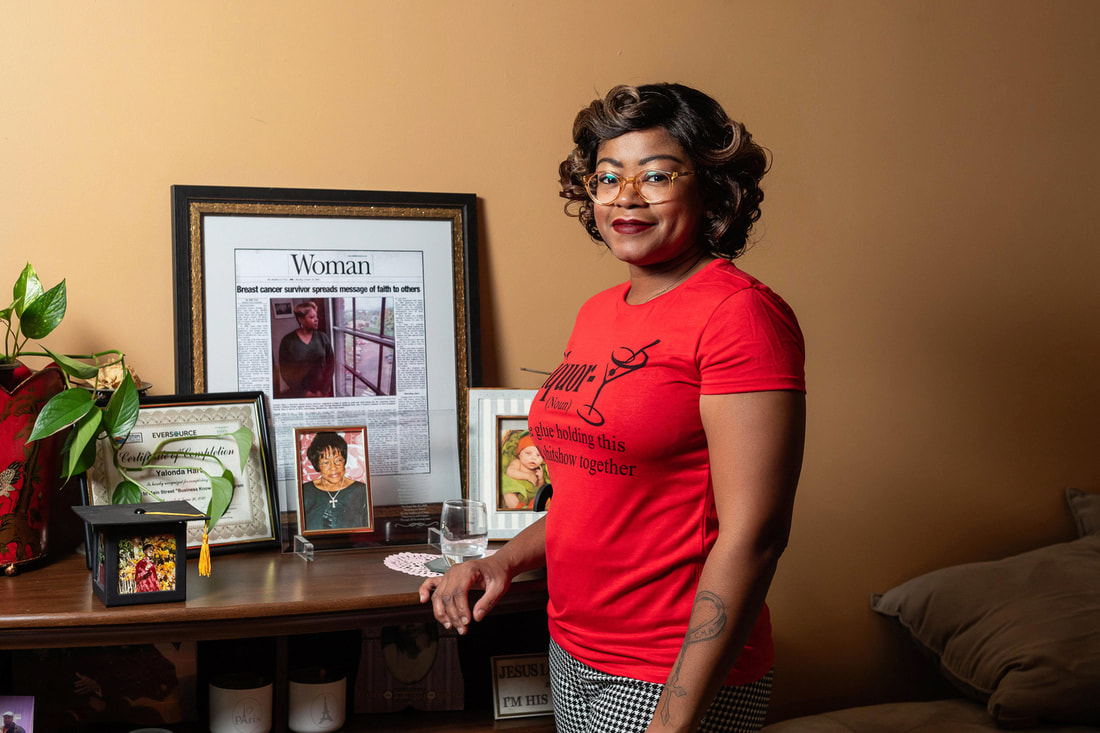
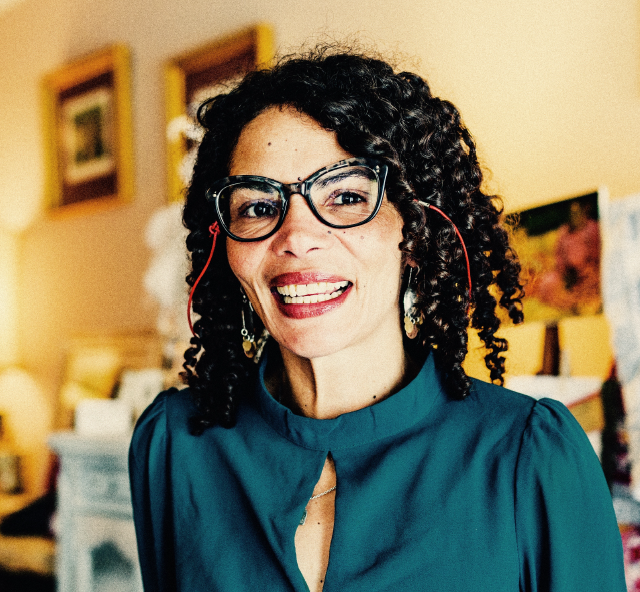

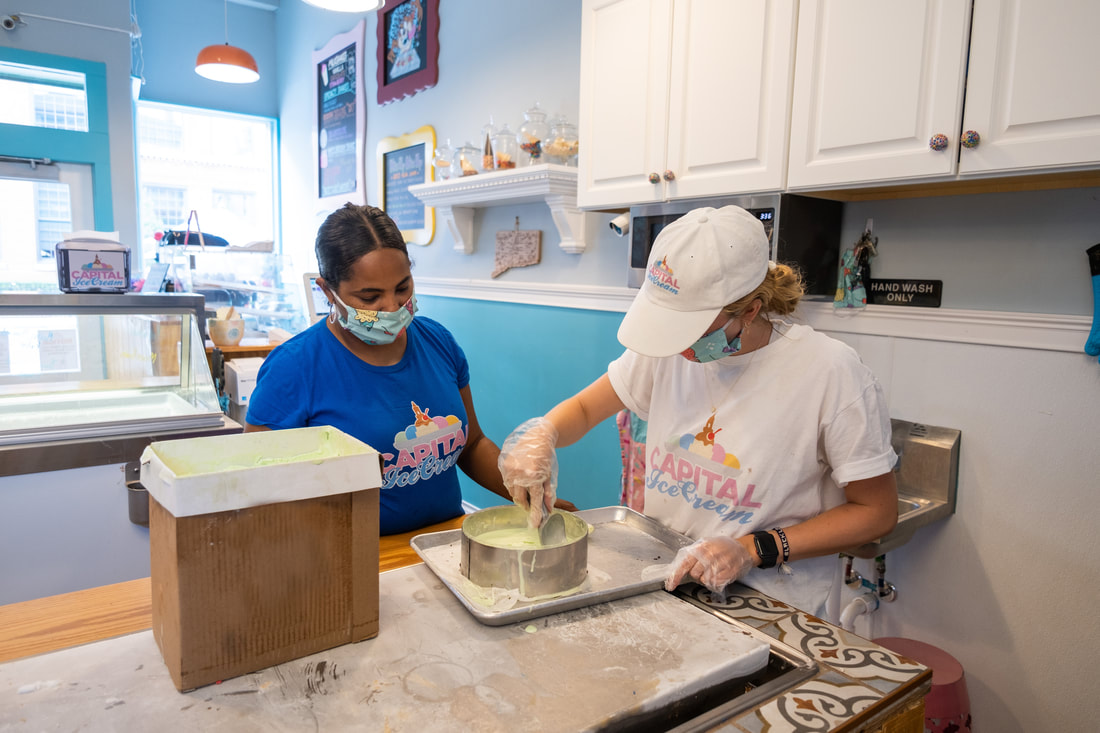
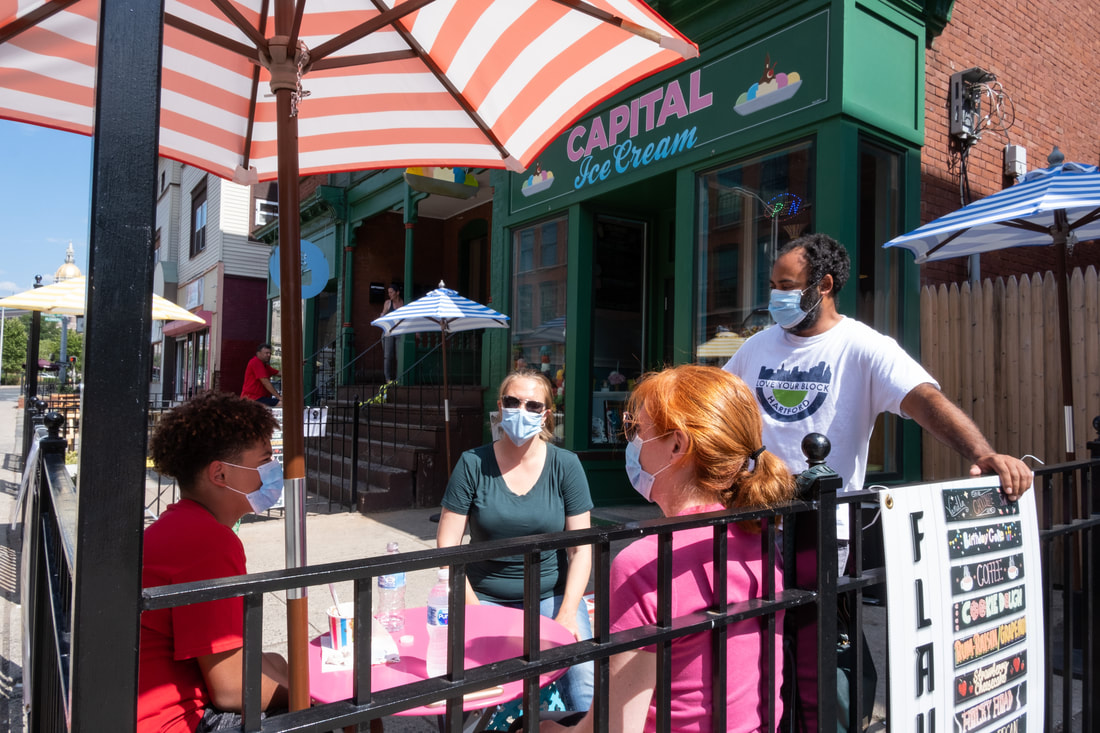
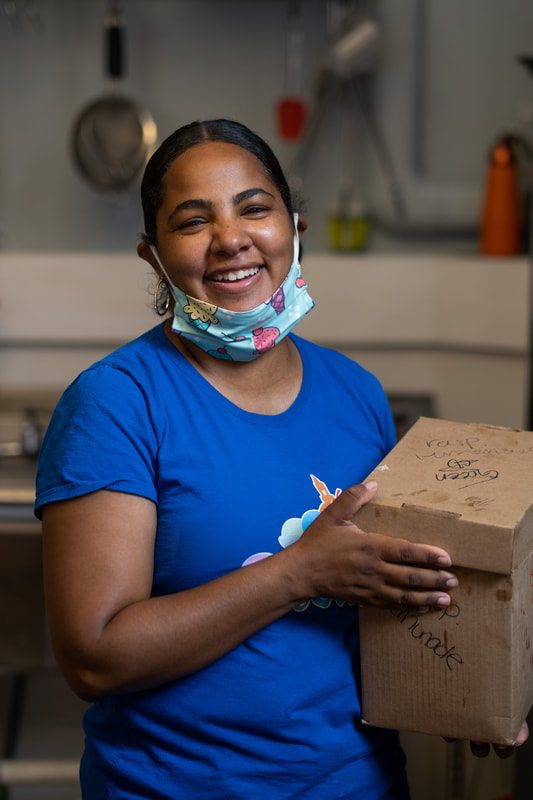
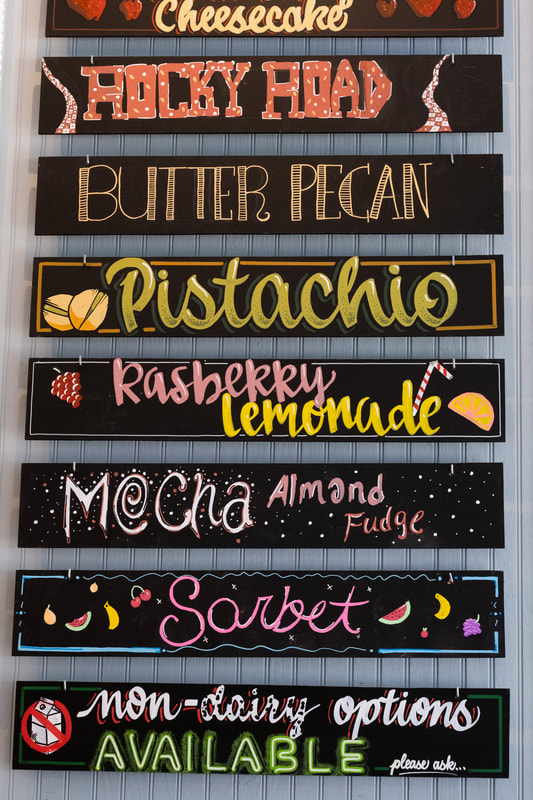
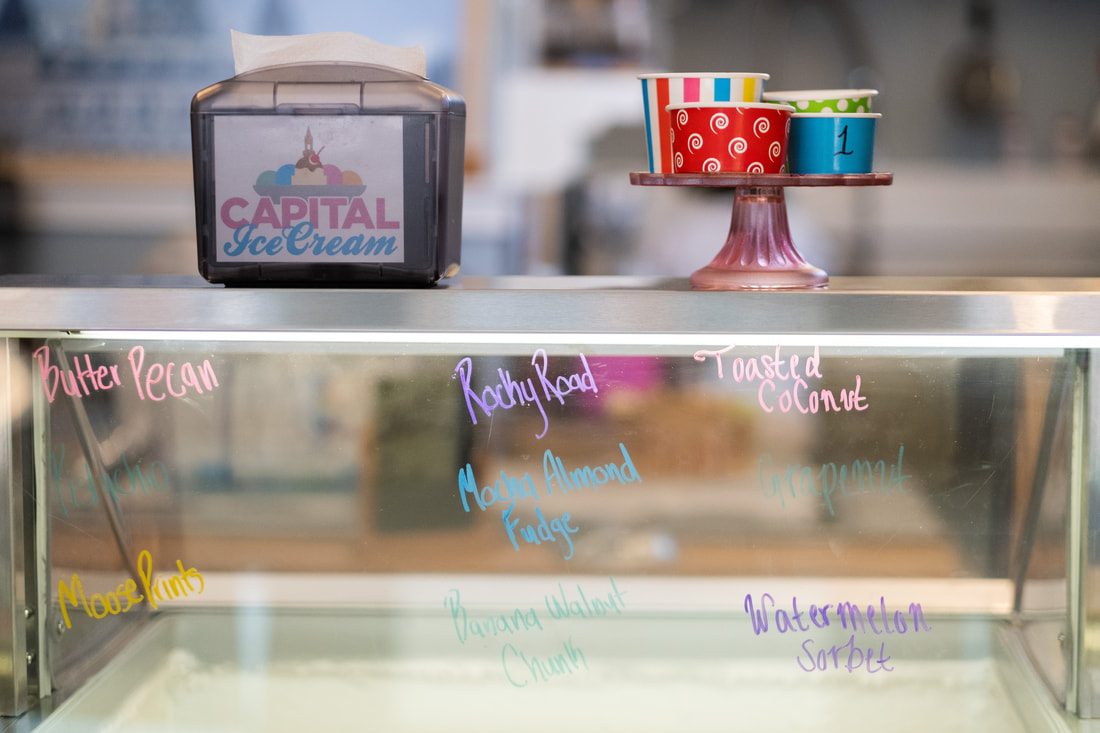
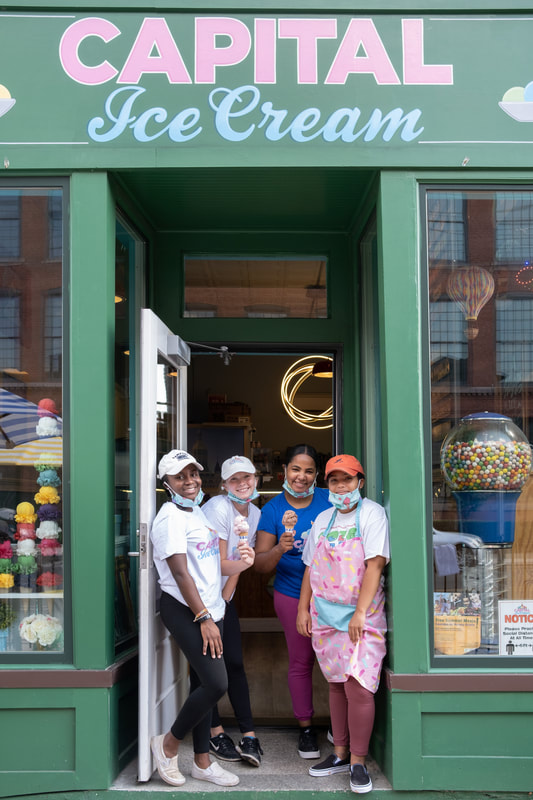
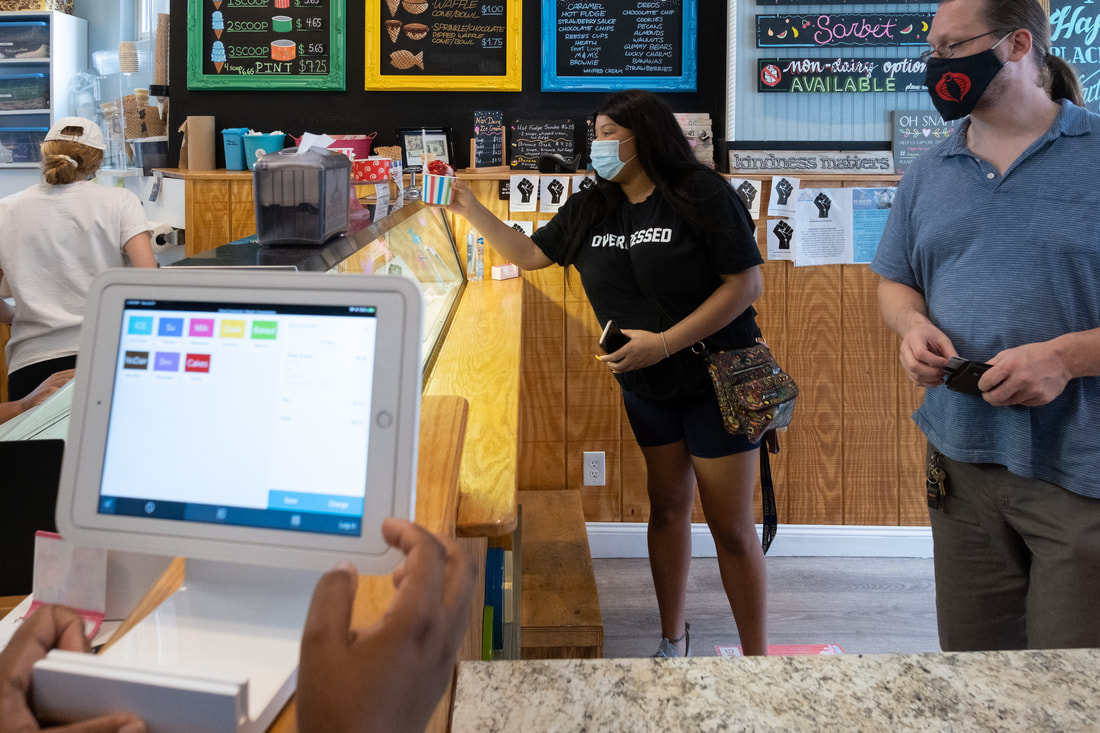
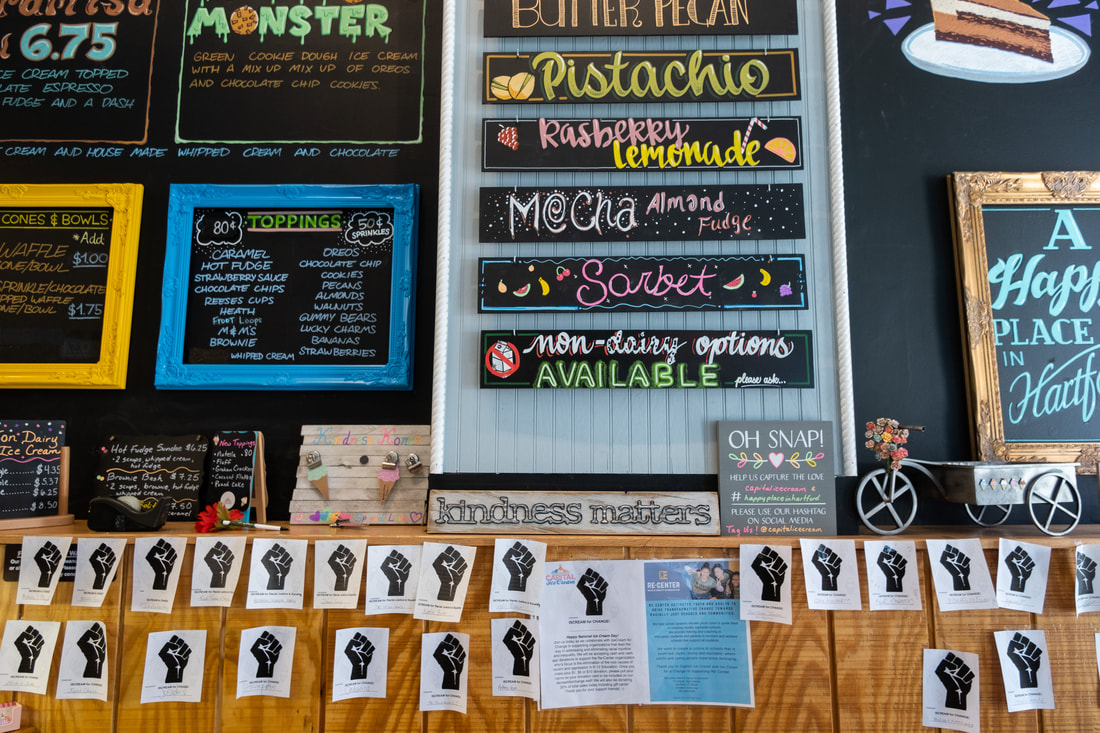
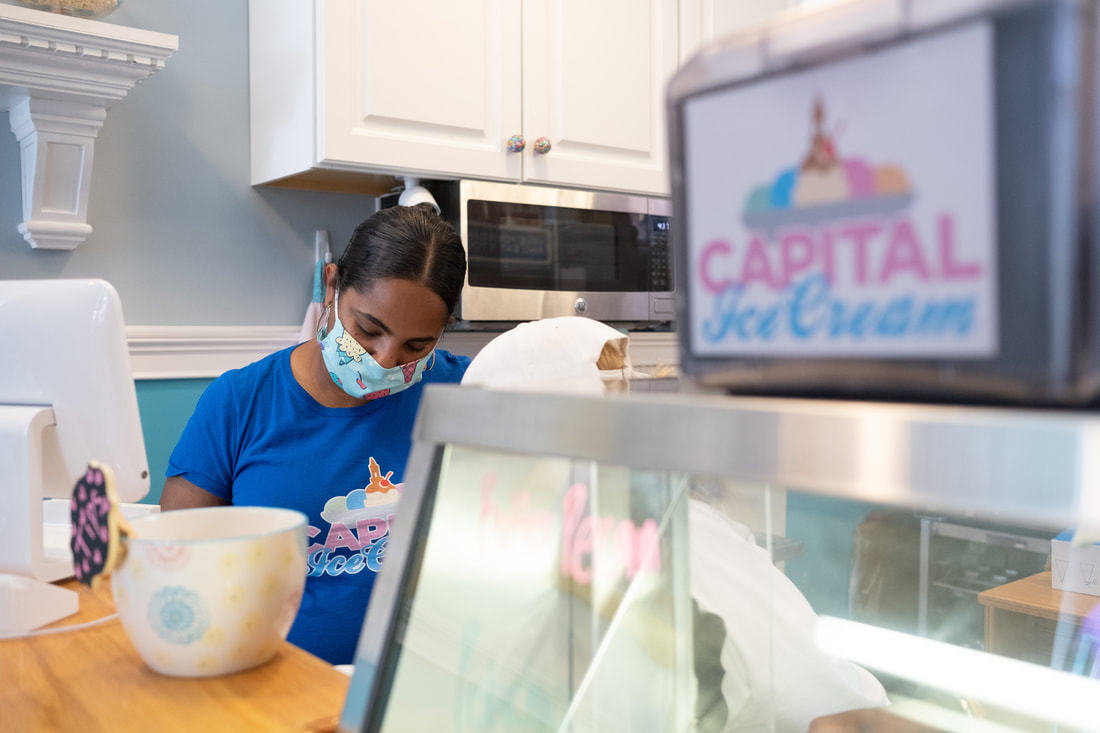
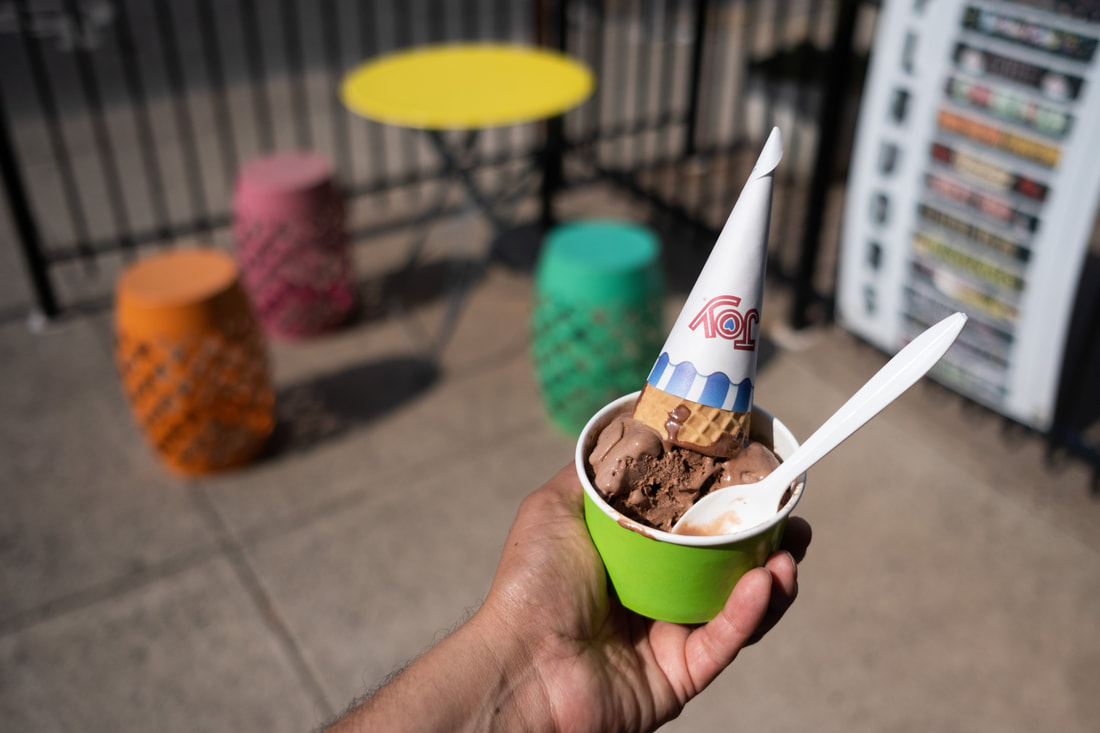


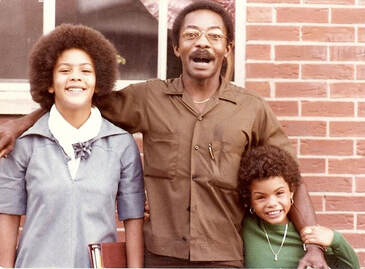
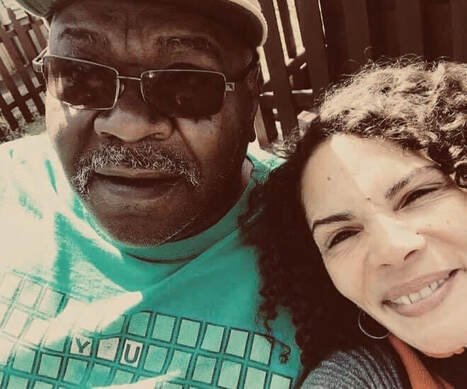
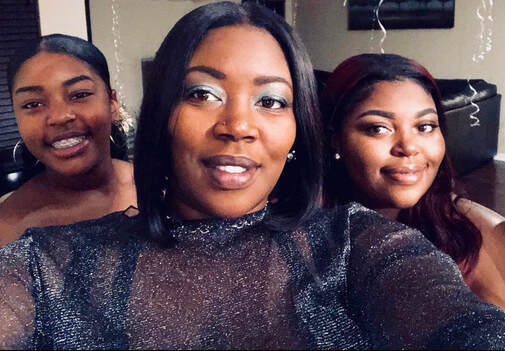
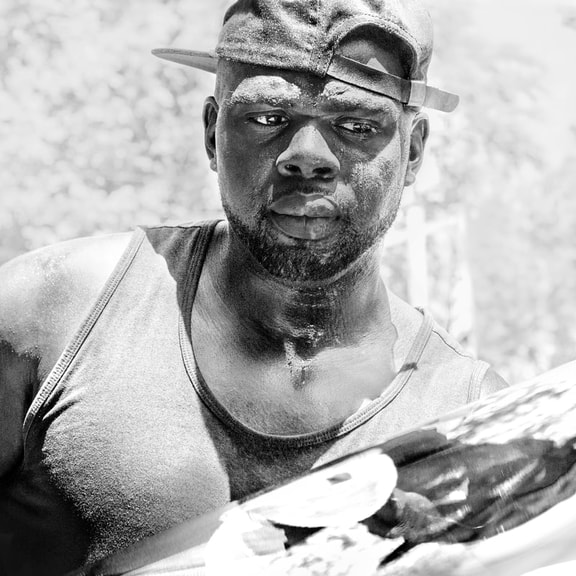

 RSS Feed
RSS Feed